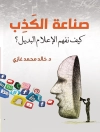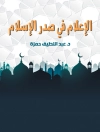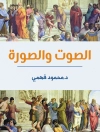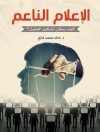The World Wide Web has now been in use for more than 20 years. From early browsers to today’s principal source of information, entertainment and much else, the Web is an integral part of our daily lives, to the extent that some people believe ‘if it’s not online, it doesn’t exist.’ While this statement is not entirely true, it is becoming increasingly accurate, and reflects the Web’s role as an indispensable treasure trove. It is curious, therefore, that historians and social scientists have thus far made little use of the Web to investigate historical patterns of culture and society, despite making good use of letters, novels, newspapers, radio and television programmes, and other pre-digital artefacts.
This volume argues that now is the time to question what we have learnt from the Web so far. The 12 chapters explore this topic from a number of interdisciplinary angles – through histories of national web spaces and case studies of different government and media domains – as well as an introduction that provides an overview of this exciting new area of research.
Praise for The Web as History
‘Essential reading both for understanding how historians would like to use the web archives we have been assembling and for hinting at how archival theory and practice can engage with a much richer conception of what archiving the Web means.’
The American Archivist
‘The Web as History is a timely and topical collection jam-packed with interesting research and creative methodological discussions. I am convinced many humanities and social sciences researchers working in similar areas and historians venturing into this field, but also students on different levels – interested in the history of the Web or issues of method – will greatly benefit from reading this volume.’
Nordicom Review
‘This book is definitely useful for anyone who wants to analyze site content, or who thinks about how the content of the Internet can be archived at all… [of interest to] anyone who is interested in the Internet as a social phenomenon’
Journal Czech Society (Review translated from Czech)
‘[The Web as History] has shared the first fruit of research and moved on from discussing the impediments to working with web archives. It is a starting point and a fascinating indication of what the enormous richness of the archived web has to offer.’
Internet Histories
‘No other work as cohesively, clearly, forcefully and successfully argues for the Web’s centrality in contemporary society and social science. While scholars of new media tend to turn their attention to the newest and latest new media phenomena, the Web is and will continue to be crucial to understanding online phenomena generally and, just as critically, providing a record of online discourse and events.’ Steve Jones, UIC Distinguished Professor of Communication, University of Illinois at Chicago
Table des matières
Introduction: The Web as History
Ralph Schroeder and Niels Brügger
PART ONE THE SIZE AND SHAPE OF WEB DOMAINS
1. Analysing the UK web domain and exploring 15 years of UK universities on the web
Eric T. Meyer, Taha Yasseri, Scott A. Hale, Josh Cowls, Ralph Schroeder and Helen Margetts
2. Live versus archive: Comparing a web archive to a population of web pages
Scott A. Hale, Grant Blank and Victoria D. Alexander
3. Exploring the domain names of the Danish web
Niels Brügger, Ditte Laursen and Janne Nielsen
PART TWO MEDIA AND GOVERNMENT
4. The tumultuous history of news on the web
Matthew S. Weber
5. International hyperlinks in online news media
Josh Cowls and Jonathan Bright
6. From far away to a click away: The French state and public services in the 1990s
Valérie Schafer
PART THREE CULTURAL AND POLITICAL HISTORIES
7. Welcome to the web: The online community of Geo Cities during the early years of the World Wide Web
Ian Milligan
8. Using the web to examine the evolution of the abortion debate in Australia, 2005–2015
Robert Ackland and Ann Evans
9. Religious discourse in the archived web: Rowan Williams, Archbishop of Canterbury, and the sharia law controversy of 2008
Peter Webster
10. ‘Taqwacore is Dead. Long Live Taqwacore’ or punk’s not dead?: Studying the online evolution of the Islamic punk scene
Meghan Dougherty
11. Cultures of the UK web
Josh Cowls
12. Coda: Web archives for humanities research – some reflections
Jane Winters
A propos de l’auteur
Ralph Schroeder is a Professor at the Oxford Internet Institute. Before coming to Oxford University, he was Professor at Chalmers University in Gothenburg. His recent books are Rethinking Science, Technology and Social Change (2007) and, co-authored with Eric T. Meyer, Knowledge Machines: Digital Transformations of the Sciences and Humanities (2015).











